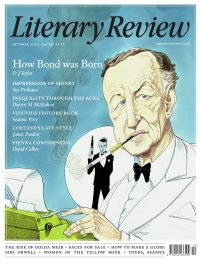Mathew Lyons
Marginal Interests
I didn’t recognise the book on my shelf. In fact, I barely noticed it, scanning the titles quickly for a different one I had mislaid. But somehow the thin, tattered spine of its dust jacket caught my eye as it rested in the shadowed end of the bookcase.
It was one of my dad’s from his student days. I kept a few of them when we had cleared my parents’ house. Mum and Dad met in the Young Communist League a couple of years after the war. Their revolutionary ardour had faded by the 1950s, but I always felt a fondness for those young firebrands I never knew.
I didn’t remember this book, though: Musical Uproar in Moscow by Alexander Werth, published by Turnstile Press in 1949. Dad bought it the same year, on 7 June, a few days after his twenty-third birthday. It is about Stalin’s ideological assault on contemporary Russian composers, Shostakovich and Prokofiev among them. But what made my heart skip, flicking through its pages, wasn’t Werth’s prose or the thoughts of Soviet apparatchiks like Andrei Zhdanov. It was Dad’s small, precise handwriting in the margins.
It was a shock. My parents taught us to treat books with respect. And yet here was my father, the same age as my son is now, arguing out loud with the author, with groupthink, with himself. So, for instance, when Zhdanov is reported as saying that ‘in modern

Sign Up to our newsletter
Receive free articles, highlights from the archive, news, details of prizes, and much more.@Lit_Review
Follow Literary Review on Twitter
Twitter Feed
It wasn’t until 1825 that Pepys’s diary became available for the first time. How it was eventually decrypted and published is a story of subterfuge and duplicity.
Kate Loveman tells the tale.
Kate Loveman - Publishing Pepys
Kate Loveman: Publishing Pepys
literaryreview.co.uk
Arthur Christopher Benson was a pillar of the Edwardian establishment. He was supremely well connected. As his newly published diaries reveal, he was also riotously indiscreet.
Piers Brendon compares Benson’s journals to others from the 20th century.
Piers Brendon - Land of Dopes & Tories
Piers Brendon: Land of Dopes & Tories - The Benson Diaries: Selections from the Diary of Arthur Christopher Benson by Eamon Duffy & Ronald Hyam (edd)
literaryreview.co.uk
Of the siblings Gwen and Augustus John, it is Augustus who has commanded most attention from collectors and connoisseurs.
Was he really the finer artist, asks Tanya Harrod, or is it time Gwen emerged from her brother’s shadow?
Tanya Harrod - Cut from the Same Canvas
Tanya Harrod: Cut from the Same Canvas - Artists, Siblings, Visionaries: The Lives and Loves of Gwen and Augustus John by Judith Mackrell
literaryreview.co.uk